








2030 Priorities and Ambition
Strategic Objectives
Foreword
Our Vision, Purpose, and Values
Navigating the Challenges
Measures of success
Securing our future
Strategic Themes


2,200
homes - including 15% affordable
15ha public realm and open space + car-free streets
500,000 sq ft
cultural and community space
400
hotel rooms with conference facilities
£1.6bn
net additional GVA
1.35m sq ft
commercial & innovation space
Placeshaping and transformation of the physical environment
10,000
25,000
650
£1.3bn+
construction jobs
Up to
high value jobs in key
sectors created
future Aston University students
will undertake new modules in
digital and entrepreneurial skills
annual GVA
What we will do -
Deliver jobs, skills, inclusive growth
Each £1m investment in R&D at the B-IQ could generate up to:
£5m additional private investment
£10m additional public R&D grant funding
£13m additional capital investment
additional students undertaking innovation-linked courses
R&D
1,500
student/graduate start-ups
250 pre-start-up projects supported each year
education and healthcare
education and healthcare
75
300,00 sq ft
Globally significant
Centre of Excellence
On the doorstop of HS2, the B-IQ will accelerate and boost the benefits it will deliver
43, 600
£3bn
gross additional FTE jobs (midlands HS2 Growth Strategy 2021 - WMCA)
additional private
sector investment
£1.6bn
Globally significant
Centre of Excellence
The B-IQ is a strategic partnership between Aston University, Bruntwood SciTech and Birmingham City Council, which aims to realise a bold vision within a new digital era, by creating a leading innovation cluster of international significance centred on science, technology and enterprise. It represents an innovation ecosystem that will co-locate industry, business, entrepreneurs and start-up founders together with staff and students from academia, bringing digital cutting-edge research into a range of sectors – most critically the health tech sector. It will become the catalyst for foreign investment, for business transformation, and for skills, and in turn will create socio-economic impact across the region.
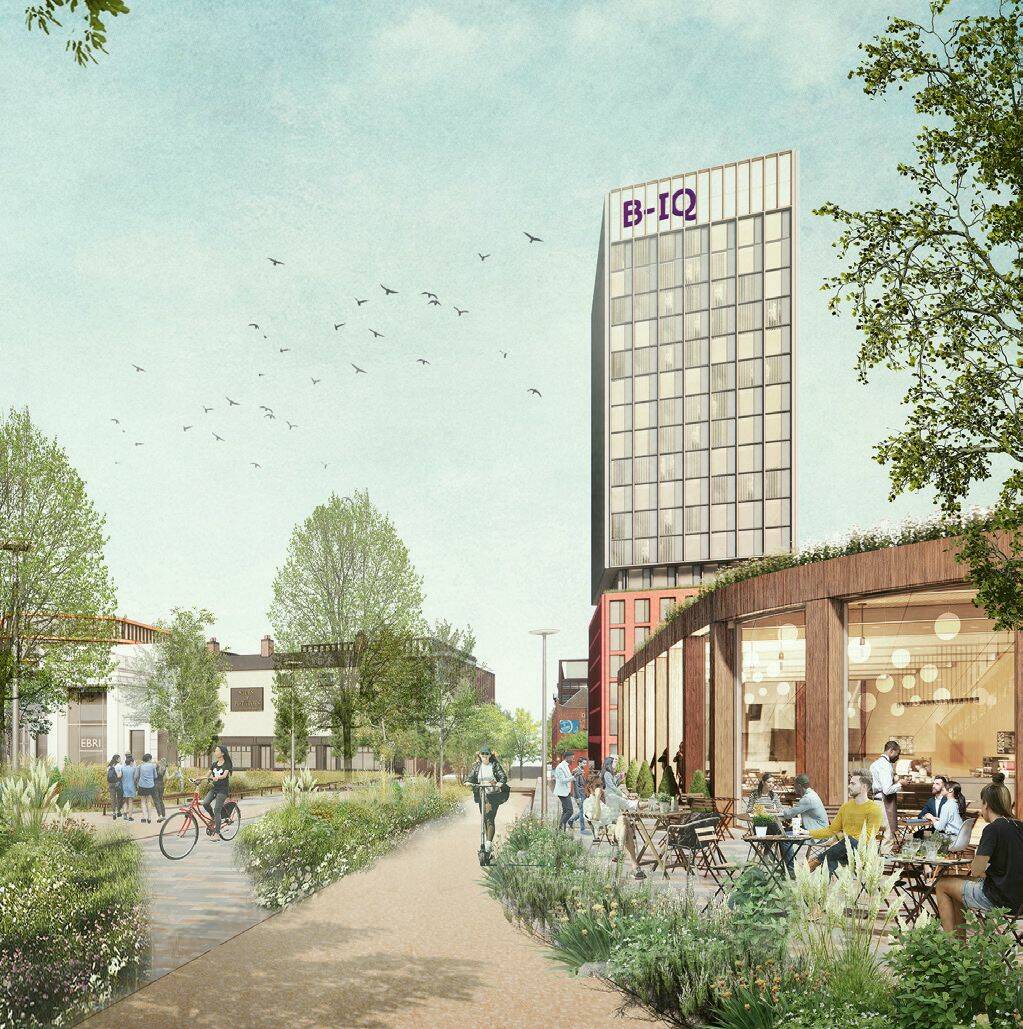


Education strategy
Research strategy
Enterprise strategy
College strategies
International strategy
Enabling strategies
Education:
The education provided by the university enables students to become more productive employees after graduation. Graduates are also more likely to be employed than those without a degree.
Placements:
The placements offered by the university provide important experience for students, which boosts Likelihood of employment after graduation, as well as contributing positively to the local economy and business productivity.
£ generated from graduate wage premium (net of tuition fees).
£ generated from placements by industry sector.
Research and innovation:
The university and its partners generate positive impact through research and commercialisation. The university also leverages industry investment in research, development and innovation (RD&I) to further boost these benefits.
Direct employment and operations:
The university as an employer is home to hundreds of high value, high impact jobs. University operations contribute capital expenditure in the local economy.
£ generated from university operations (income net of expenditures).
£ generated from research and commercialisation.
£ leveraged industry investment in RD&I.
Number of high value jobs created.
£ generated from direct jobs.
No. indirect jobs created.
£ generated from procurement spend.
Induced employment generated by local spend:
The university’s procurement of goods and services, as well as student expenditure in the local economy, support a large number of jobs in the local economy and supply chain.
Business turnover:
Businesses supported directly by the university including student/staff start-ups, spin-outs, and social enterprises contribute significantly to the economy through their activity, employment, and turnover.
Placemaking:
Ongoing expansion of the university in Birmingham and elsewhere is creating commercial and workspace, supporting local
sqm commercial space created.
£ capital investment in placemaking.
No. induced jobs created.
£ student expenditure in the local economy.
£ staff expenditure in the local economy.
£ turnover generated by fi rms supported by the university.
Impact

Research Excellence Framework (REF) / Times Higher Education GPA Ranking
Knowledge Exchange Framework (KEF)
International reputation – QS World University Ranking
International reputation – Times Higher Education Ranking
International reputation – Times Higher Education Impact Ranking
National reputation – The Guardian
National reputation – The Times / The Sunday Times
Number of revenue-generating business partnership agreements
Number of community partnership agreements
Number of revenue-generating international partnership agreements (JVs)
Number of commercial / corporate Joint Ventures
Number of active Knowledge Transfer Partnerships
Digital inclusion – Digital Skills Academy provision
Health equity – Health Services Hub community access to clinical services
Measures
Benefit
Projected 2030 contribution
Although the university already makes a significant contribution to the local and national economy, the 2030 strategy is an opportunity to do more. As the university continues to grow its operations, research outputs, and reputation – attracting more local and international students, creating the opportunity for more research and business partnerships, and continuing to grow its role as an anchor institution – there is an opportunity to increase economic contribution as well as drive the wider social benefits which are important to local communities.
Based on aspirational but achievable targets that the university has set for itself, an estimate of the potential impact by 2030 has also been calculated. The infographics illustrate the overall economic impact of Aston University and also the total economic impact that will be realised from the B-IQ, through our work in strategic partnerships and joint ventures with the city and private sector.
By 2030, if the university’s targets can be achieved through the activity set out in this strategy, then Aston University’s economic impact could grow to £2.37bn by 2030, a growth of just under £1bn from the 2023 level described. A breakdown of the potential 2030 impact is shown.
The total economic output of Aston University has been estimated based on its effect on skills, jobs, investment, and gross value added (GVA); grouped under the following principal areas of impact:
Core operations:
Direct output of the university based on net income.
Indirect impact on the wider economy and supply chain as a result of procurement spend and staff wages spent in the economy.
Research and innovation:
Value of funded research (with an impact multiplier applied).
Turnover of businesses supported by the university including graduate start-ups, formal spin-outs, and social enterprises.
Teaching:
Wage premia experienced by graduates (compared to non-graduate baseline).
Student expenditure in the economy (50% of spending attributed to the university).
Placements:
Output contributed by students to the businesses in which they are working (assumed to be 1/3 that of standard output per worker based on the sector in which the placement is occurring).
New jobs created
£185m
£317.1m
Increased skills
£594.5m
£1,013m
Investment
£107.2m
£181.9m
Gross value added
£532.1m
£864.3m
Teaching
£556.6m
Total:
£1.42bn
£2.37bn










Investment
Core
operations
£359.8m
£538.7m
Placements
£37.8m
Total:
£1.42bn
£2.37bn
£64.5m
Student expenditure in the economy
£377.1m

£642.7m
Research and innovation
£93.1m
£182m
£948.8m
Aston University’s economic impact by area
2023 - 2030
“We are building a digital innovation powerhouse in the heart of Birmingham – a place where digital tech and health tech, the brightest talent, most exciting businesses and cultural institutions come together.”
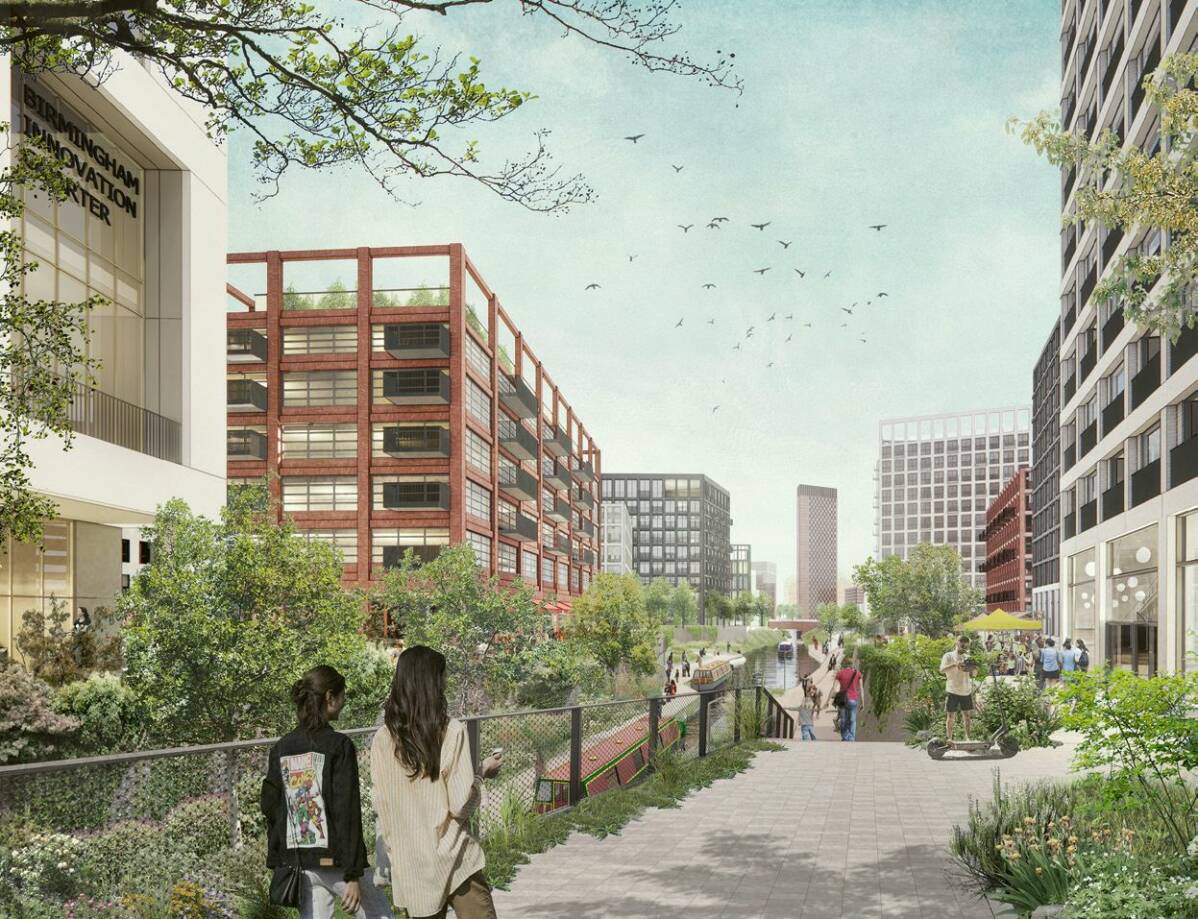
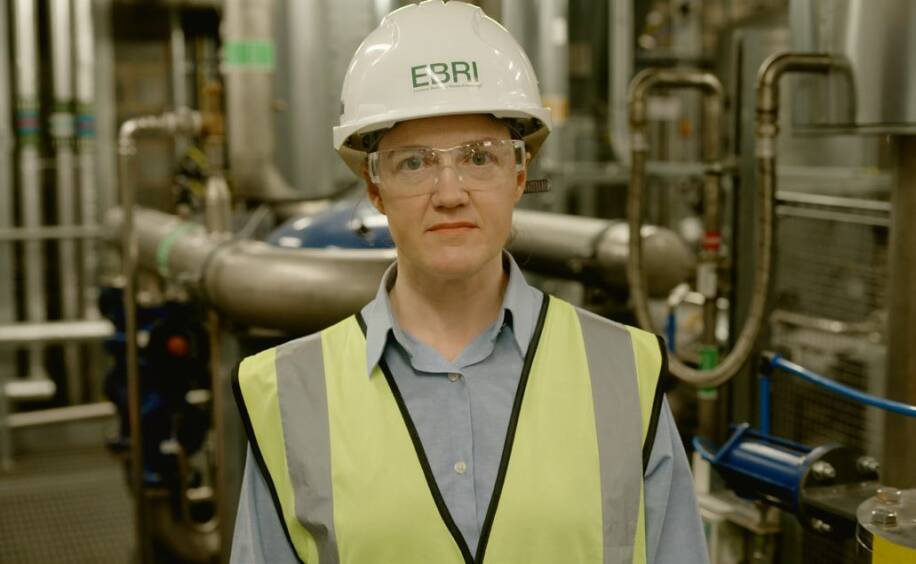
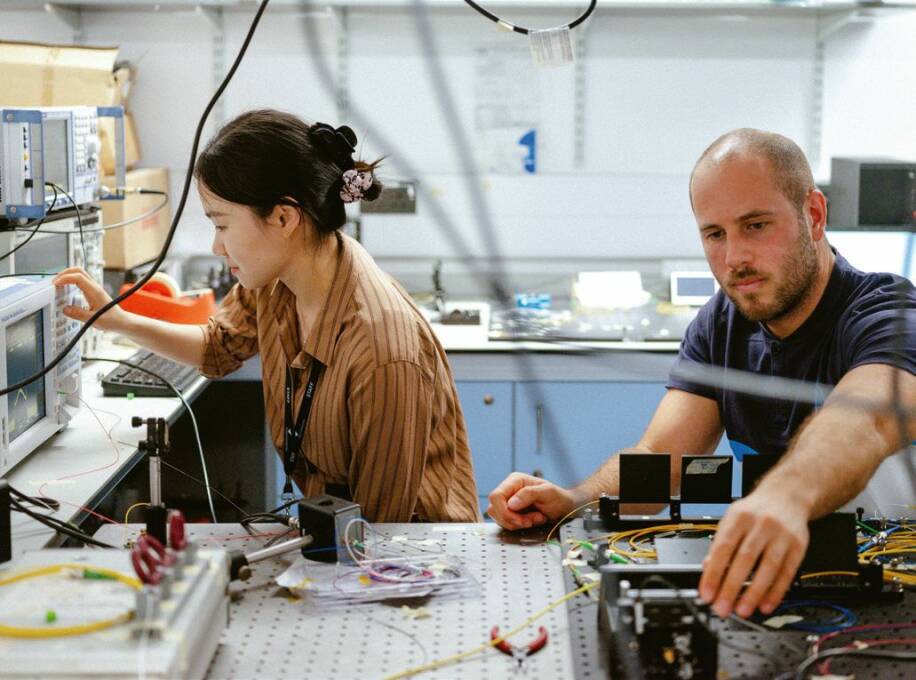
In 2022-23, the principal impact channels outlined above show that Aston University’s total economic output was £1.42bn [Metro Dynamics]. This represents its impact on the national economy, measured as a combination of the university’s core operations (expenditure and salary payments), research, teaching, student expenditure, and student placements.
Reducing the productivity gap by generating innovation-led growth and addressing the demand for skilled professionals, which will support emerging growth sectors and create the high value-add jobs which will retain our students in the city and attract businesses.
Levelling up and inclusive growth agenda by fostering inclusive growth within our community and local economy, making future-orientated education accessible to all, applying innovation and using the university’s expertise to tackle the societal challenges and inequalities which limit people’s potential.
Local regeneration and place-making agenda – by being a key player in Birmingham’s regeneration programme, making a direct contribution to the East Birmingham Levelling Up Zone, fostering positive change to the local community and economy.
Net-zero agenda and the overall transition towards a greener economy – by actively supporting businesses in adopting sustainable practices and business models to achieve net-zero emissions; undertaking world-leading research projects to drive innovation and develop cutting-edge solutions for a sustainable future and equipping students with the carbon skills and literacy needed.

Birmingham Innovation Quarter
By tackling these important challenges, we will make a significant contribution to the local and national agendas which impact our local community:
Our contribution

2,200
homes - including 15% affordable
1.35m sq ft
commercial & innovation space
15ha public realm and open space + car-free streets
500,000 sq ft
cultural and community space
400
hotel rooms with conference facilities
£1.6bn
net additional GVA
Placeshaping and transformation of the physical environment
£1.6bn
net additional GVA
43, 600
£3bn
gross additional FTE jobs (midlands HS2 Growth Strategy 2021 - WMCA)
additional private
sector investment
£1.6bn
On the doorstop of HS2, the B-IQ will accelerate and boost the benefits it will deliver
10,000
25,000
650
construction jobs
Up to
high value jobs in key
sectors created
future Aston University students
will undertake new modules in
digital and entrepreneurial skills
annual GVA
£1.3bn+
What we will do -
Deliver jobs, skills, inclusive growth
Globally significant
Centre of Excellence
Each £1m investment in R&D at the B-IQ could generate up to:
£5m additional private investment
£10m additional public R&D grant funding
£13m additional capital investment
additional students undertaking innovation-linked courses
R&D
1,500
student/graduate start-ups
250 pre-start-up projects supported each year
education and healthcare
75
300,00 sq ft
Globally significant
Centre of Excellence
The B-IQ is a strategic partnership between Aston University, Bruntwood SciTech and Birmingham City Council, which aims to realise a bold vision within a new digital era, by creating a leading innovation cluster of international significance centred on science, technology and enterprise. It represents an innovation ecosystem that will co-locate industry, business, entrepreneurs and start-up founders together with staff and students from academia, bringing digital cutting-edge research into a range of sectors – most critically the health tech sector. It will become the catalyst for foreign investment, for business transformation, and for skills, and in turn will create socio-economic impact across the region.
Projected impact
Birmingham Innovation Quarter




Education strategy
Research strategy
Enterprise strategy
College strategies
International strategy
Enabling strategies
Education:
The education provided by the university enables students to become more productive employees after graduation. Graduates are also more likely to be employed than those without a degree.
Placements:
The placements offered by the university provide important experience for students, which boosts Likelihood of employment after graduation, as well as contributing positively to the local economy and business productivity.
£ generated from graduate wage premium (net of tuition fees).
£ generated from placements by industry sector.
Research and innovation:
The university and its partners generate positive impact through research and commercialisation. The university also leverages industry investment in research, development and innovation (RD&I) to further boost these benefits.
Direct employment and operations:
The university as an employer is home to hundreds of high value, high impact jobs. University operations contribute capital expenditure in the local economy.
£ generated from university operations (income net of expenditures).
£ generated from research and commercialisation.
£ leveraged industry investment in RD&I.
Number of high value jobs created.
£ generated from direct jobs.
No. indirect jobs created.
£ generated from procurement spend.
Induced employment generated by local spend:
The university’s procurement of goods and services, as well as student expenditure in the local economy, support a large number of jobs in the local economy and supply chain.
Business turnover:
Businesses supported directly by the university including student/staff start-ups, spin-outs, and social enterprises contribute significantly to the economy through their activity, employment, and turnover.
Placemaking:
Ongoing expansion of the university in Birmingham and elsewhere is creating commercial and workspace, supporting local
sqm commercial space created.
£ capital investment in placemaking.
No. induced jobs created.
£ student expenditure in the local economy.
£ staff expenditure in the local economy.
£ turnover generated by fi rms supported by the university.
Impact
Research Excellence Framework (REF) / Times Higher Education GPA Ranking
Knowledge Exchange Framework (KEF)
International reputation – QS World University Ranking
International reputation – Times Higher Education Ranking
International reputation – Times Higher Education Impact Ranking
National reputation – The Guardian
National reputation – The Times / The Sunday Times
Number of revenue-generating business partnership agreements
Number of community partnership agreements
Number of revenue-generating international partnership agreements (JVs)
Number of commercial / corporate Joint Ventures
Number of active Knowledge Transfer Partnerships
Digital inclusion – Digital Skills Academy provision
Health equity – Health Services Hub community access to clinical services
Measures










Benefit
New jobs created
£185m
£317.1m
Increased skills
£594.5m
£1,013m
Investment
£107.2m
£181.9m
Gross value added
£532.1m
£864.3m
Total:
£1.42bn
£2.37bn











Investment
Core
operations
£359.8m
£538.7m
Placements
£37.8m
Total:
£1.42bn
£2.37bn
£64.5m
Student expenditure in the economy
£377.1m
£642.7m
Research and innovation
£93.1m
£182m
Teaching
£556.6m
£948.8m
Projected 2030 contribution
Although the university already makes a significant contribution to the local and national economy, the 2030 strategy is an opportunity to do more. As the university continues to grow its operations, research outputs, and reputation – attracting more local and international students, creating the opportunity for more research and business partnerships, and continuing to grow its role as an anchor institution – there is an opportunity to increase economic contribution as well as drive the wider social benefits which are important to local communities.
Based on aspirational but achievable targets that the university has set for itself, an estimate of the potential impact by 2030 has also been calculated. The infographics illustrate the overall economic impact of Aston University and also the total economic impact that will be realised from the B-IQ, through our work in strategic partnerships and joint ventures with the city and private sector.
By 2030, if the university’s targets can be achieved through the activity set out in this strategy, then Aston University’s economic impact could grow to £2.37bn by 2030, a growth of just under £1bn from the 2023 level described. A breakdown of the potential 2030 impact is shown.
The total economic output of Aston University has been estimated based on its effect on skills, jobs, investment, and gross value added (GVA); grouped under the following principal areas of impact:
Core operations:
Direct output of the university based on net income.
Indirect impact on the wider economy and supply chain as a result of procurement spend and staff wages spent in the economy.
Research and innovation:
Value of funded research (with an impact multiplier applied).
Turnover of businesses supported by the university including graduate start-ups, formal spin-outs, and social enterprises.
Teaching:
Wage premia experienced by graduates (compared to non-graduate baseline).
Student expenditure in the economy (50% of spending attributed to the university).
Placements:
Output contributed by students to the businesses in which they are working (assumed to be 1/3 that of standard output per worker based on the sector in which the placement is occurring).
“We are building a digital innovation powerhouse in the heart of Birmingham – a place where digital tech and health tech, the brightest talent, most exciting businesses and cultural institutions come together.”

In 2022-23, the principal impact channels outlined above show that Aston University’s total economic output was £1.42bn [Metro Dynamics]. This represents its impact on the national economy, measured as a combination of the university’s core operations (expenditure and salary payments), research, teaching, student expenditure, and student placements.
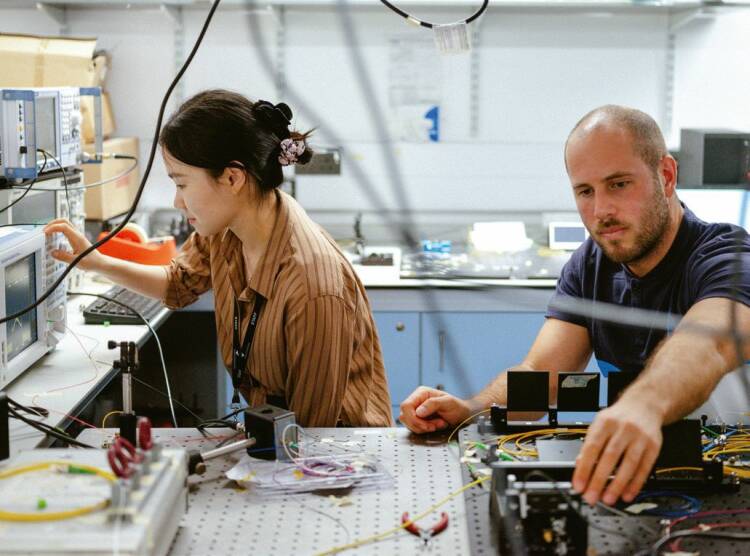
Reducing the productivity gap by generating innovation-led growth and addressing the demand for skilled professionals, which will support emerging growth sectors and create the high value-add jobs which will retain our students in the city and attract businesses.
Levelling up and inclusive growth agenda by fostering inclusive growth within our community and local economy, making future-orientated education accessible to all, applying innovation and using the university’s expertise to tackle the societal challenges and inequalities which limit people’s potential.
Local regeneration and place-making agenda – by being a key player in Birmingham’s regeneration programme, making a direct contribution to the East Birmingham Levelling Up Zone, fostering positive change to the local community and economy.
Net-zero agenda and the overall transition towards a greener economy – by actively supporting businesses in adopting sustainable practices and business models to achieve net-zero emissions; undertaking world-leading research projects to drive innovation and develop cutting-edge solutions for a sustainable future and equipping students with the carbon skills and literacy needed.
By tackling these important challenges, we will make a significant contribution to the local and national agendas which impact our local community:
Our contribution